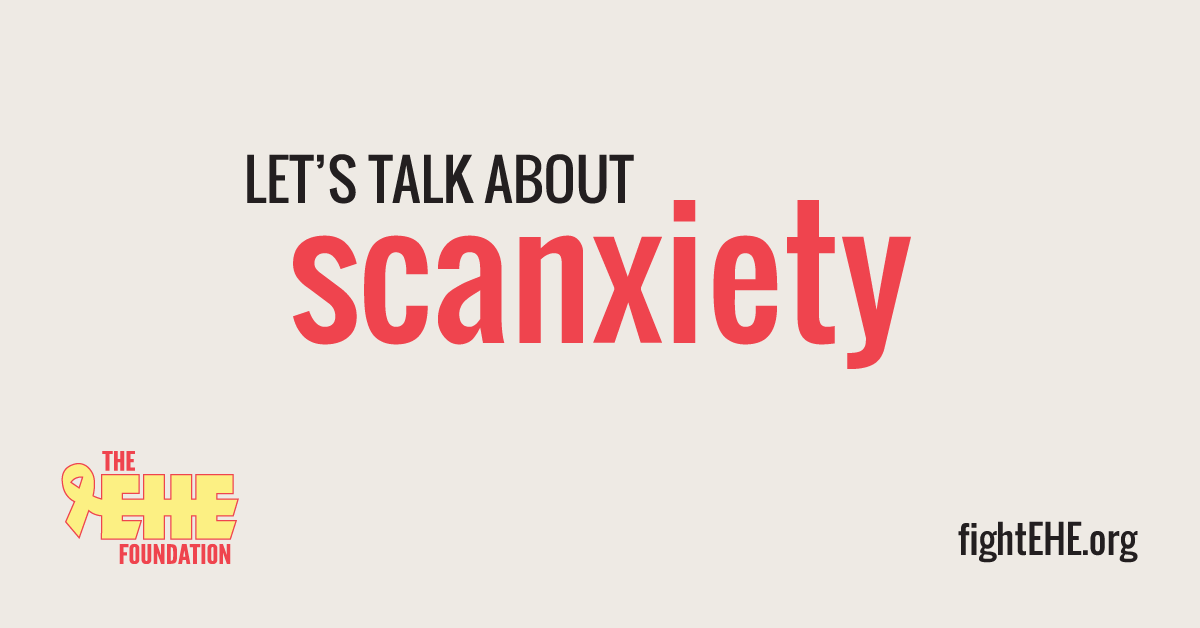What is scanxiety?
Scanxiety describes the apprehension felt by people with cancer as they wait for their next scan. It’s a form of anticipatory anxiety. Scans are like emotional roulette. You’re trying really hard not to worry about the unknown, but your body has other plans.
Recognizing the Signs of Scanxiety
Symptoms of scanxiety vary from person to person. Here are a few things you might be experiencing.
- increased heart rate
- trouble sleeping
- tension and irritability
- stomach pain/nausea/appetite loss
- sweating
- difficulty concentrating
- trouble regulating emotions and/or mood
- emotional numbness
- jumpiness or restlessness
- racing thoughts and panic
Symptoms range from mild to intense and can be invasive to your daily life. You just don’t feel like yourself and normal activities become cumbersome and trying. It becomes hard to make decisions until after your scans have passed.
Life feels like it’s on hold.
What can you do to manage scanxiety?
Most importantly, know that your feelings are valid, and you are not alone. These feelings are very typical for people dealing with a difficult diagnosis. To cope with your scanxiety, you’ll need to recognize your symptoms, and make a plan.
Make note of the symptoms that you typically feel and the go-to coping strategies that work for you. Keep your plan handy for when scanxiety creeps in.
Three Strategies for Coping with Scanxiety
- Mindfulness is about accepting what is, accepting that unpleasant feelings are happening, and riding it out with as little judgment of whether those feelings are right or wrong, or whether or not you should be feeling them. They are happening. Period.
- Contact Your Support People. Reach out to family and friends that ground you and provide steady, calm advice in times of worry. Some patients may prefer support groups or professional counselors.
- Relax with Intention. Breathwork, meditation, massage, yoga or light exercise, journaling, reading, listening to a book, or focusing on a hobby are all ways to use relaxation to cope with scanxiety.
While the symptoms and coping techniques vary from person to person, patients with a serious diagnosis almost inevitably feel anxiety surrounding their condition. It’s important to plan for when this happens. We can’t prevent all scanxiety, but we can mindfully confront it. A little plan can help in a big way!

